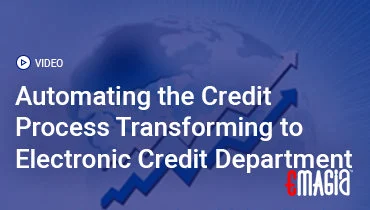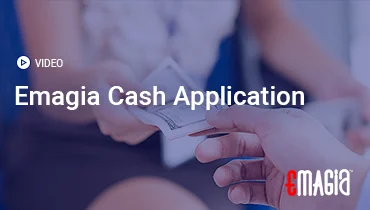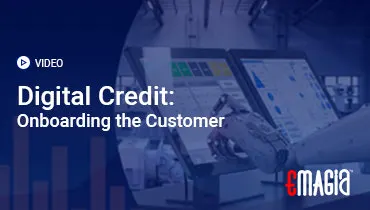In the complex dance of modern commerce, few challenges are as persistent and impactful as managing cash flow. For businesses of all sizes, from bustling startups to global enterprises, a healthy flow of capital is the lifeblood that fuels growth, sustains operations, and enables strategic investment. But what happens when that flow is disrupted by unpaid invoices and delinquent accounts? This is where the strategic role of a credit management collections agency becomes not just beneficial, but absolutely essential. It’s a specialized partner that helps companies recover outstanding debts with professionalism and precision, protecting their financial health and customer relationships.
This comprehensive guide will demystify the world of professional debt recovery. We will delve deep into the purpose, process, and unparalleled advantages of working with a collections specialist. From understanding the core services they offer to learning how to choose the perfect partner for your unique needs, this is your definitive roadmap to fortifying your financial future and ensuring every dollar you earn makes it back home.
Understanding the Core Function of a Credit Management Collections Agency
At its heart, a collections agency is a firm hired by businesses to pursue overdue payments from their customers. When your in-house efforts to collect an outstanding balance have failed, these agencies step in as a third party to resolve the debt. Their expertise lies in navigating the delicate process of debt recovery while adhering to a strict framework of legal and ethical standards. This specialized focus allows them to succeed where internal teams may fall short, converting “bad debt” into tangible cash flow.
What Exactly Do They Do? Defining the Services
A modern collections agency offers far more than just phone calls and demand letters. They provide a suite of services designed to maximize recovery rates and maintain the integrity of the client-debtor relationship. These services are often tailored to specific industries and debt types.
- Debt Collection: This is their primary service. They handle the communication, negotiation, and administration required to collect on unpaid accounts.
- Debt Negotiation: They are skilled at negotiating payment plans or lump-sum settlements with debtors, often finding a middle ground that works for both parties.
- Skip Tracing: For debtors who have disappeared, agencies use advanced methods to locate them and initiate contact.
- Dispute Resolution: They act as a mediator to resolve billing disputes, ensuring a fair and transparent process.
The In-House vs. Agency Dilemma: Weighing the Benefits
Many businesses begin their collections efforts in-house, and for good reason. It allows for direct control and can save on fees. However, there comes a point where an internal team’s capacity is exceeded, or their resources are simply not suited to the task. Outsourcing to a professional service is not a sign of failure; it’s a strategic business decision. By handing over the responsibility, you leverage specialized expertise, save valuable time, and preserve your internal resources for more strategic tasks.
The Clear Advantages of Outsourcing Your Collections
Partnering with a professional collections agency unlocks a cascade of benefits that directly impact a company’s financial health and operational efficiency.
- Expertise and Efficiency: Agencies are specialists. They understand the legal landscape, know how to communicate effectively with debtors, and have established processes that lead to higher success rates. This means faster recovery and less stress for your team.
- Time and Resource Savings: The administrative burden of chasing down late payments is immense. By outsourcing, you free up your internal accounting staff to focus on critical, revenue-generating activities like financial analysis, strategic planning, and managing a healthy pipeline.
- Improved Cash Flow: The most tangible benefit is a measurable reduction in your Days Sales Outstanding (DSO). By accelerating the recovery process, agencies ensure a more consistent and predictable flow of cash, which is vital for meeting your own financial obligations and investing in future growth.
- Legal Compliance: Debt collection is a heavily regulated field. A reputable agency is an expert in the Fair Debt Collection Practices Act (FDCPA) and other relevant laws, which shields your business from potential legal risks and costly lawsuits.
- Professionalism and Brand Protection: A professional agency treats your customers with respect, even when the conversation is difficult. This is paramount for maintaining a positive brand reputation and the potential for future business with the debtor.
Navigating the Selection Process: How to Choose the Best Partner
Choosing the right collections partner is a critical decision that can define the success of your debt recovery strategy. It’s not about finding the biggest or cheapest agency, but the one that aligns with your business values and objectives. Careful due diligence is essential to ensure a mutually beneficial partnership.
Key Factors to Consider When Selecting an Agency
- Industry Specialization: Does the agency have a proven track record in your specific industry? A collections agency that understands the nuances of healthcare, B2B, or consumer debt will be far more effective than a generalist firm.
- Compliance and Ethics: Verify that the agency is fully licensed, bonded, and compliant with all relevant local, state, and federal regulations. A strong commitment to ethical practices is non-negotiable for protecting your brand.
- Technology and Reporting: A top-tier agency uses advanced technology for skip tracing, communication, and process automation. Look for robust reporting tools that provide real-time visibility into your accounts and collection performance.
- Fee Structure: The “no collection, no fee” model is standard. However, you should understand the specifics of their fee schedule, as it may vary based on the age and size of the debt. Transparency in pricing is crucial.
- Customer Service and Communication: How will the agency communicate with your team? Will you have a dedicated account manager? A strong, communicative partnership is essential for a smooth and effective process.
The Dangers of Choosing the Wrong Partner: Red Flags to Avoid
While a good collections agency is an invaluable asset, a bad one can cause significant damage to your reputation and financial standing. It’s important to know the warning signs that indicate an agency may not be the right fit for your business.
- Lack of Transparency: Be wary of an agency that is not forthcoming about its methods, fee structure, or legal compliance. A reputable partner should be an open book.
- Unprofessional Conduct: An agency that employs aggressive, unethical, or illegal tactics can lead to legal action against your business and severely damage your brand reputation.
- Poor Communication: If an agency is difficult to reach or provides infrequent and vague updates, you may lose control of your accounts and be unable to make informed decisions.
Intelligent Collections in the Digital Age: How Emagia Empowers Modern Finance
In the digital-first landscape of modern finance, the old methods of debt recovery are no longer enough. Enter Emagia, a pioneer in the space, which leverages the power of artificial intelligence to redefine the entire order-to-cash process. Emagia’s platform transforms the traditional, often-reactive function of collections into a proactive and strategic operation. It’s an end-to-end solution that goes beyond basic automation to offer intelligent, data-driven insights.
Emagia’s AI-powered platform provides a unified view of your entire credit portfolio, offering predictive analytics to forecast payment behavior and pinpoint accounts at risk of becoming delinquent. Its intelligent automation streamlines everything from dunning and communication to dispute resolution, allowing your team to focus on high-value, high-risk accounts. With a smart system that prioritizes workflows and provides real-time insights, you can accelerate cash, reduce bad debt, and turn your accounts receivable department from a cost center into a strategic advantage for your business.
Frequently Asked Questions About Credit Management Collections Agency
How much does a credit management collections agency cost?
Most reputable agencies operate on a contingency fee basis. This means they only charge a percentage of the amount they successfully recover. The fee typically varies based on the age of the debt, with older accounts commanding a higher percentage due to the increased effort required for collection.
What is the difference between a first-party and third-party collection agency?
A first-party agency is an in-house department or subsidiary of the original creditor, focused on early-stage delinquencies. A third-party agency is an external company hired to handle debts that the original creditor has been unable to collect, typically after a debt is 90 days or more past due.
How can I maintain a positive customer relationship while using a collections agency?
The key is to partner with a professional and ethical agency that uses a firm but respectful approach. They should be trained to act as an extension of your business, prioritizing positive communication and finding mutually agreeable solutions rather than resorting to aggressive tactics.
Are there laws that protect debtors from harassment?
Yes, in the United States, the Fair Debt Collection Practices Act (FDCPA) is the primary federal law that governs the behavior of third-party debt collectors. It prohibits harassment, abuse, and deceptive practices. A reputable collections agency will always operate within the bounds of this law and other relevant regulations.
When should I hire a collections agency?
Most businesses wait between 90 and 120 days of non-payment before engaging an agency. However, this is a strategic decision that should be based on the specific situation. The longer an account goes unpaid, the more difficult it becomes to collect, so acting sooner rather than later is often beneficial.



